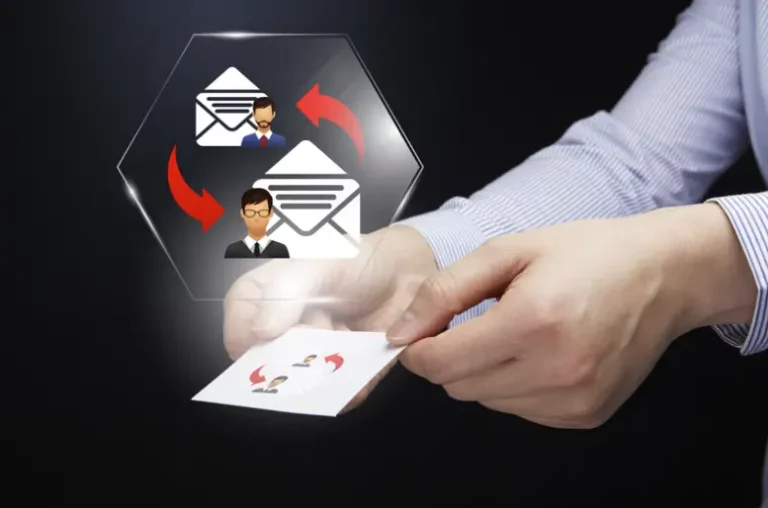“The aim of marketing is to know and understand the customer so well the product or service fits him and sells itself.”
Peter Drucker
Email marketing remains one of the most effective digital marketing strategies, but the landscape is rapidly evolving. The primary challenge for marketers today is to personalize emails in a way that engages recipients and drives conversions. This article delves into how advanced email marketing software can overcome the personalization challenge, exploring technological advancements, industry trends, and practical applications.
The Challenge of Personalization in Email Marketing

Personalization in email marketing involves tailoring messages to individual recipients based on their preferences, behaviors, and interactions. However, achieving effective personalization is complex and requires sophisticated tools and strategies. A study by Statista revealed that personalized emails deliver six times higher transaction rates than non-personalized emails, yet 70% of brands fail to use them effectively.
The complexity arises from the need to gather and analyze vast amounts of data to understand customer preferences and behaviors. This includes tracking website interactions, purchase history, email engagement, and social media activity. According to a report by McKinsey, companies leveraging data-driven personalization can generate 5 to 8 times the ROI on marketing spend and increase sales by 10% or more.
AI and Machine Learning in Email Personalization

Artificial Intelligence (AI) and Machine Learning (ML) are transforming email marketing software by enabling advanced personalization capabilities. AI algorithms can analyze customer data in real-time, identifying patterns and preferences that inform personalized email content. For example, AI can determine the best time to send emails to individual recipients based on their past engagement patterns, optimizing open and click-through rates.
Machine Learning models can segment audiences more precisely than traditional methods. These models analyze various data points to create dynamic segments that update in real-time as customer behaviors change. This ensures that recipients always receive relevant content, enhancing engagement and conversion rates. A study by Campaign Monitor found that segmented email campaigns can result in a 760% increase in revenue.
Natural Language Processing (NLP) further enhances personalization by analyzing the language and tone of customer interactions. NLP can identify the sentiment behind customer emails and social media posts, allowing marketers to tailor their messages to resonate with recipients’ current emotions and needs. This creates a more personalized and engaging experience for the customer.
Practical Applications and Business Benefits

Several advanced email marketing platforms leverage AI and ML to enhance personalization. For instance, Mailchimp uses AI-driven tools to analyze customer data and predict the best content and timing for emails. Mailchimp’s predictive analytics feature helps marketers create highly personalized email campaigns that improve engagement and conversions.
Another example is HubSpot, which employs AI and ML to segment audiences dynamically and personalize email content. HubSpot’s advanced algorithms analyze customer behavior to deliver relevant content at the right time, enhancing the effectiveness of email marketing campaigns. This AI-driven approach helps businesses achieve better results from their email marketing efforts.
The benefits of integrating AI and ML into email marketing software extend beyond personalization. These technologies also improve efficiency by automating routine tasks, such as segmenting audiences and scheduling emails. This allows marketers to focus on strategic initiatives and creative content development. Additionally, AI-driven insights provide a deeper understanding of customer behaviors and preferences, enabling more informed decision-making.
The Future of Email Marketing Software
The future of email marketing software lies in further advancements in AI and ML. As these technologies evolve, they will enable even more precise personalization and real-time adjustments to email campaigns. For example, AI could analyze a recipient’s response to an email and immediately adjust the follow-up message to better align with their preferences and behaviors.
Moreover, the integration of AI with other marketing technologies, such as Customer Data Platforms (CDPs) and Customer Relationship Management (CRM) systems, will create a more cohesive and comprehensive approach to personalization. This will enable marketers to deliver a seamless and consistent experience across all customer touchpoints.
Conclusion

Enhancing personalization in email marketing is crucial for engaging recipients and driving conversions in today’s competitive digital landscape. Advanced email marketing software, powered by AI and ML, provides the tools and capabilities needed to overcome the personalization challenge. By leveraging these technologies, marketers can deliver highly personalized and relevant content that resonates with recipients and improves marketing outcomes.
Incorporating AI and ML into email marketing not only addresses personalization challenges but also offers broader business benefits, including increased efficiency and improved decision-making. As such, businesses should consider adopting advanced email marketing software to stay ahead in an ever-evolving market.
For those looking to optimize their email marketing efforts, integrating AI-driven tools can provide a significant competitive advantage. The future of email marketing is personalized, and the time to embrace this transformation is now.


